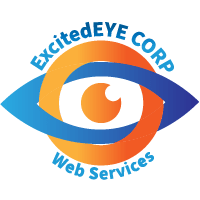Ready to Build Your Digital Community?
An online community is a group of people who communicate and interact with each other through the internet. Online communities can be focused on a wide range of topics, interests, or goals. These communities can take many different forms, such as forums, social media groups, or dedicated community platforms.
 Online communities often provide a sense of belonging and connection for their members, who may share similar interests or experiences. They can also serve as a source of support, information, and resources and can be a powerful tool for promoting causes or raising awareness about issues.
Online communities often provide a sense of belonging and connection for their members, who may share similar interests or experiences. They can also serve as a source of support, information, and resources and can be a powerful tool for promoting causes or raising awareness about issues.
Online communities can be an excellent way for people to connect and engage with others, even if they are physically separated by distance. They can provide a sense of community and belonging. All of which can be valuable resources for learning and networking.
5 Motivations to Build an Online Community
- Professional networking: An online community can be a great way to connect with others in your industry. With the intent to share ideas, resources, and job opportunities.
- Personal interests: You might want to build an online community around a hobby or personal interest, such as a bike club, a group for outdoor enthusiasts, or a like-minded social club hub.
- Social support: An online community can provide a sense of belonging and support for people who may feel isolated or disadvantaged in other ways.
- Education and learning: Online communities can be an excellent resource for learners, offering a place to ask questions, share resources, and collaborate on projects.
- Advocacy and activism: An online community can be a powerful tool for promoting a cause or raising awareness about an issue.
Overall, anyone with a passion for a topic or a desire to connect with others around a shared interest may be motivated to build an online community.
7 Steps to Take for Creating an Online Community:
- Define your purpose: What do you want your community to achieve? Who is your target audience? What topics will it cover?
- Choose a platform: There are many options for hosting an online community, such as forums, social media groups, or dedicated community platforms. Choose one that fits your needs and goals.
- Build your community: Invite people to join your community and participate in discussions. Encourage members to introduce themselves and share their interests and experiences.
- Set rules and guidelines: Establish rules and guidelines for behavior in your community to ensure a positive and welcoming environment.
- Engage with your members: Encourage participation and keep the conversation going by asking questions, starting discussions, and sharing relevant content.
- Foster a sense of community: Encourage members to support and help each other. Similarly, recognize and reward those who contribute to the community.
- Moderation: As the community grows, you may need to appoint moderators. Hiring or assigning new moderators will help manage and enforce the rules.
By following these steps, you can create a vibrant and engaged online community that brings people together around a shared interest or purpose.
5 Potential Pitfalls of Building an Online Community:
- Lack of engagement: Getting members to participate in discussions actively and contribute to the community can be challenging.
- Trolls and negativity: Online communities can be targeted by trolls or negative individuals who try to disrupt discussions or create conflict.
- Misinformation: Without proper moderation, online communities can become sources of misinformation or fake news. Which can damage the community’s reputation and credibility and can permanently damage membership.
- Privacy concerns: Online communities often require users to share personal information, which can raise privacy concerns. It’s essential to have clear privacy policies in place and to take steps to protect user data.
- Resource constraints: Building and maintaining an online community requires time, effort, and resources. It can be challenging to sustain the community over the long term.
By being aware of these potential pitfalls and taking steps to address them, you can help ensure the success and sustainability of your online community.
Successful Online Communities have these 5 Key Characteristics in Common.
- A clear purpose or goal: Successful online communities have a clear purpose or goal. That brings the users together and gives them a reason to participate.
- Engaged and active members: Successful online communities have a critical mass of engaged and active members who contribute to discussions and share their experiences and insights.
- Strong leadership and moderation: Successful online communities often have strong administration and moderation. They ensure that the community remains on track and stays true to its purpose.
- A welcoming and inclusive atmosphere: Successful online communities foster a welcoming and inclusive atmosphere. They encourage new and current members to participate and feel comfortable sharing their thoughts and ideas about a shared subject.
- Quality content and resources: Successful online communities provide valuable content and resources. Furthermore, these resources are vital and relevant to their members and help keep the conversation going.
Focusing on these critical characteristics can increase the chances of building a thriving online community.
If you’d like to discuss Online Community Building and how it can relate to YOUR specific company or campaign specifics or to add to your website’s internet marketing wishlist, please contact ExcitedEYE anytime for an Online Community Building consultation.

Leave a Reply
You must be logged in to post a comment.